Has Car Usage In The U.S. Peaked? Five Charts Worth Browsing
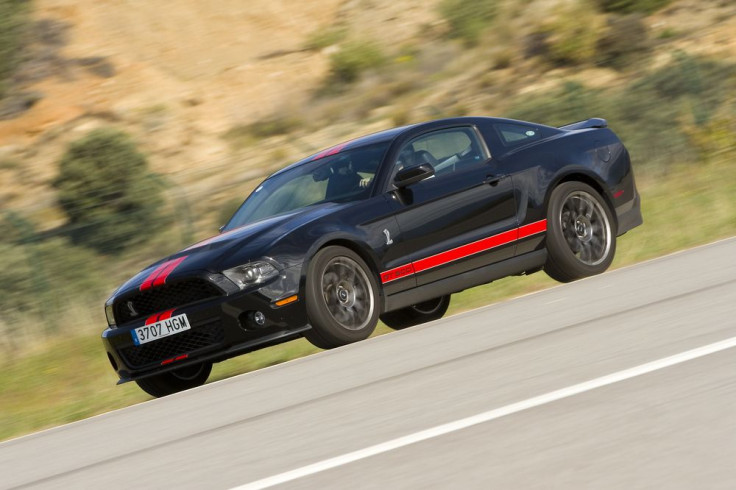
Since the recession, Americans and especially millennials have been driving less, begging the question: has car use in the U.S. peaked?
The answer appears to be “not quite.”
Americans drove fewer miles per capita last year than at the end of the nineties, according to a report by US PIRG Education Fund, with Americans aged 16 to 34 showing the biggest decline: 23 percent fewer miles on average in 2009 than in 2001. And new car purchases, though rising again overall, are still decreasing for the 18-34 age group, according to the car shopping website Edmunds.com. Millennials (born between 1983 and 2000) bought 30 percent fewer cars in the U.S. in 2012 than in 2007.
Michael Sivak and the University of Michigan Transportation Research Institute explored the possibility of a car peak in three studies. The most recent study was published in November 2013 and examined data from 1984 to 2011. Here are the findings:
1. In 2005-2006, just before the housing bubble burst, households owned just over two cars each. In 2011, there were just under two cars registered per household.
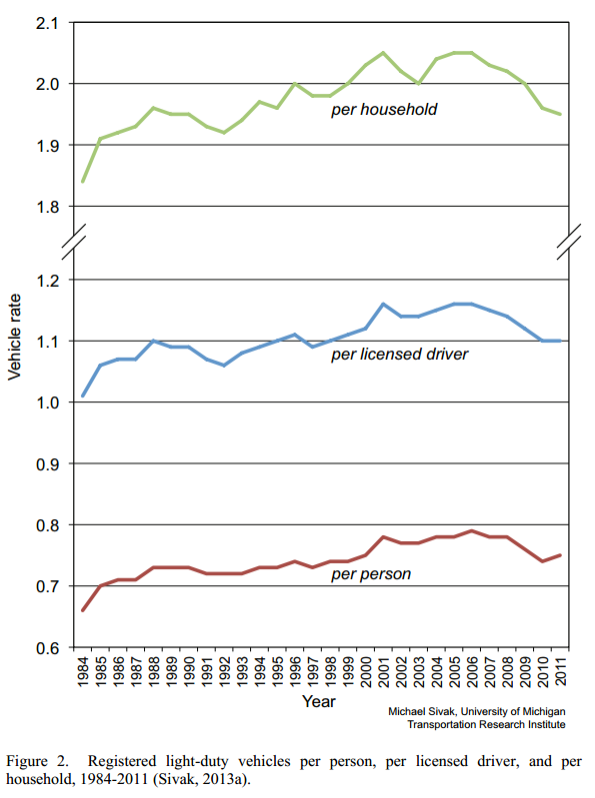
2. The total number of vehicles on U.S. roads began increasing again in 2010, although this is at least partly due to rising population. Families are not buying as many vehicles as the bubble years.
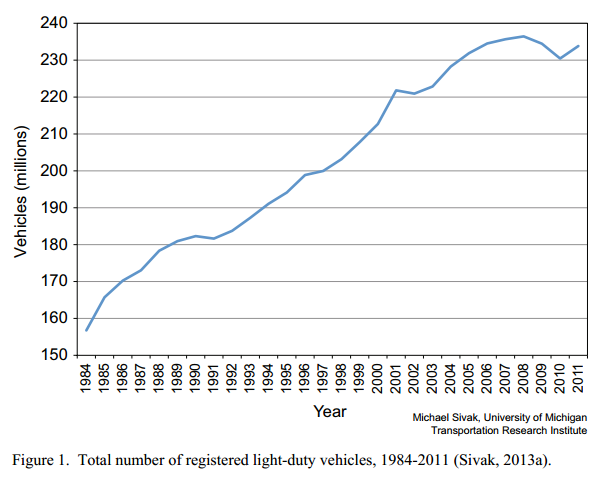
3. The average number of miles traveled has fallen 9 percent since the mid-2000s.

4. Total vehicle miles driven also dropped, though the population has grown.
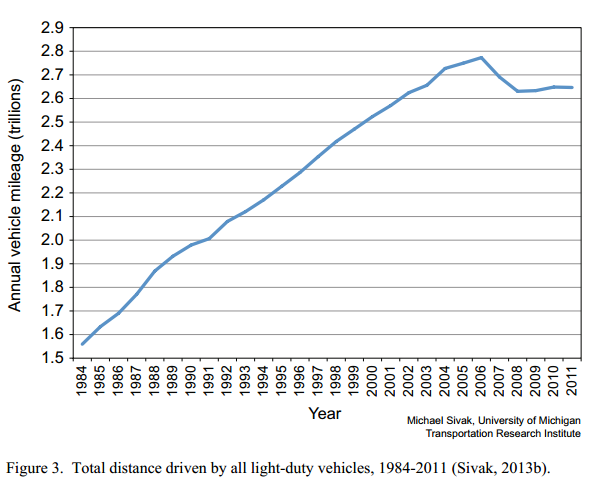
5. Lastly, fuel consumption is at a low not seen since the mid-eighties.
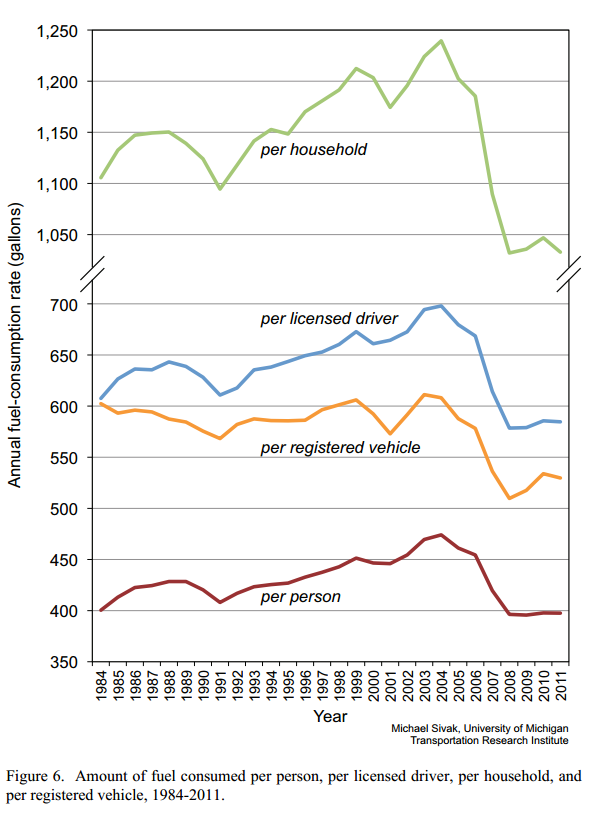
The bottom line is that Americans drive fewer cars, drive each of them less, and consume less fuel. Sivak thinks Americans will drive more again to surpass 2006 levels with a rebound in the economy.
But whether or not car use has peaked in the long term view depends on the permanence of social changes like increased urbanization and use of public transportation, especially among millennials.
© Copyright IBTimes 2025. All rights reserved.






















